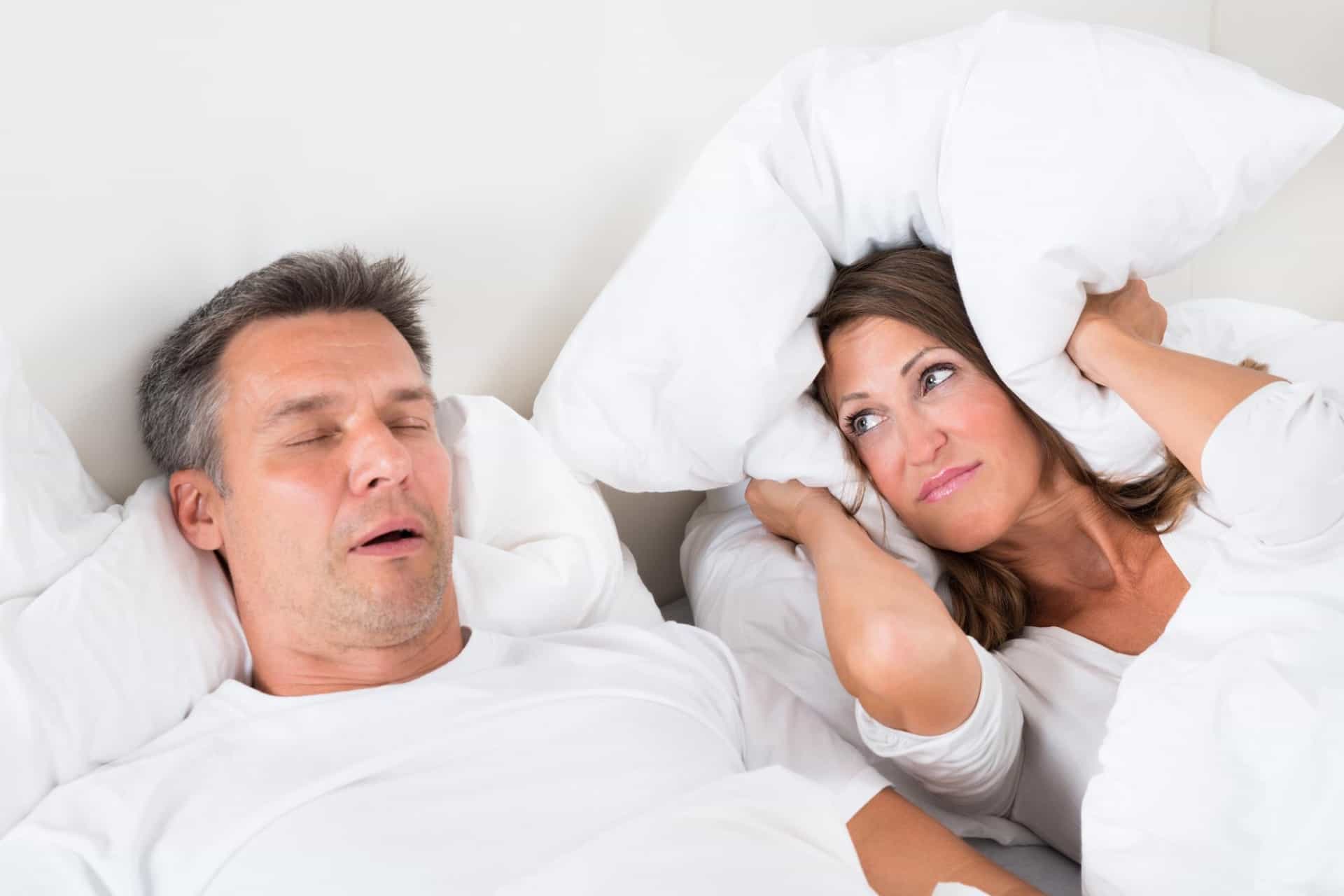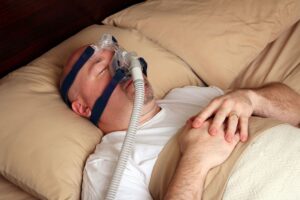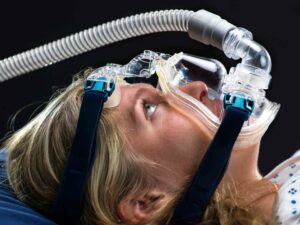If you suspect that your breathing at night is disrupted, you should have a sleep test and analysis performed. Sleep apnea, a type of sleep-disordered breathing, not only harms a person’s health and attitude on life but can also kill them.
But, before we get into the five sleep apnea signs you should never ignore, let’s go over what sleep apnea is and how it affects the body.
Sleep Apnea
Although, there are three major kinds of sleep apnea, but obstructive sleep apnea (OSA) is the most common type with people and need sleep apnea treatment. Because the structures around the throat impede the airway, a sleeper with OSA is unable to breathe deeply regularly. This blockage causes snoring at best and an all-night, gasping, choking struggle for air at worst.
Observing someone with severe sleep apnea is excruciating. They may cease breathing for up to a minute while their body feverishly seeks to take a breath. Finally, they take a massive intake of breath, followed by a few smaller ones, with a choking gasp and sometimes a spasm that travels through the body. Their body relaxes, and the process begins again.
When this person stops breathing, their blood oxygen concentration lowers. Perhaps a little, perhaps a lot. Every night, their sleep is interrupted a hundred times. Every time they have to strive for breath, they awaken to some extent. They never get a good night’s sleep and wake up exhausted and disoriented. They are drowsy throughout the day and frequently struggle to focus on chores.
This battle and oxygen deprivation take a tremendous toll on the body over time. The body responds with systemic inflammation, which can cause a slew of problems. The endocrine and neurological systems of the body are strained all night when they should be cleansed and healed by restful sleep.
Related: How to know if CPAP masks or machine isn’t working
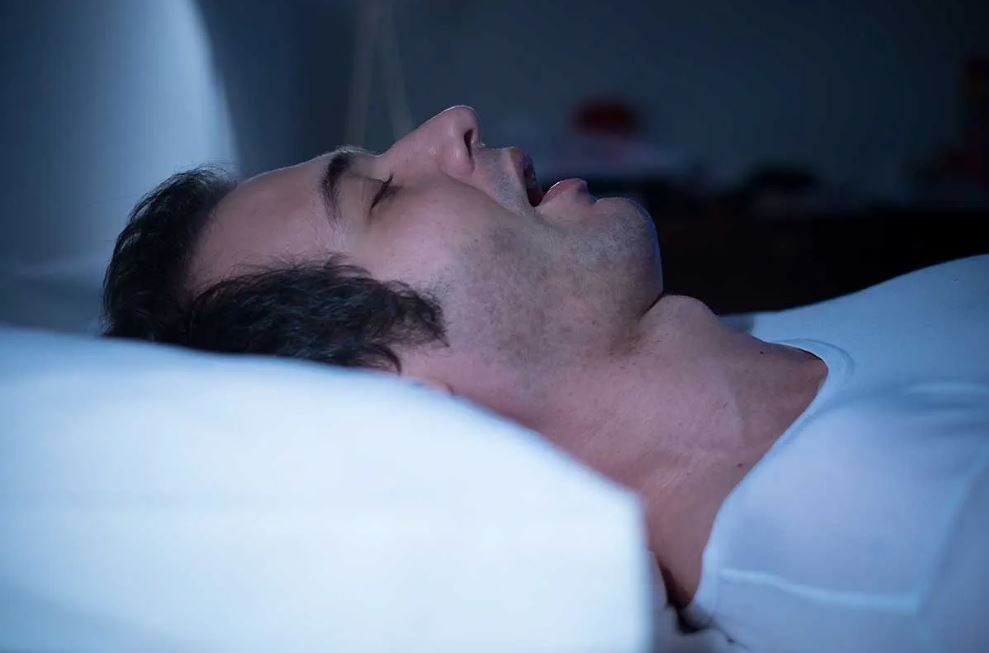
5 Signs of Sleep Apnea
While the impacts of sleep apnea can create a variety of health problems, here are five indications to be on the lookout for:
- Snoring
While mild snoring is not dangerous, it is nevertheless not desirable. The same physical condition that causes you to snort also causes sleep apnea and its related consequences. You should be aware that you may believe you are simply snoring while you are suffering from sleep apnea.
It is a good idea to have a qualified dentist or sleep specialist examine you to determine your risk for the negative effects of sleep apnea. As your snoring worsens, the chance of serious health consequences rises.
- Anxiety and Depression
can make life a living nightmare, and drugs for these diseases come with severe FDA warnings of serious side effects, including suicidal thoughts. Sleep apnea, which causes sleep and oxygen deprivation, can induce both illnesses.
Treating sleep apnea and restoring a person’s ability to enjoy a sound, restorative sleep night after night significantly reduces anxiety and despair. If you have one of these symptoms, you should get evaluated for and treated for sleep apnea.
- Migraines
Many people have found relief from their migraine headaches by treating their sleep issues. Up to 25% of patients with sleep apnea suffer from migraine headaches. In Germany, studies found that treating sleep apnea made migraines shorter and less powerful, requiring less medication.
- Morning Headaches
Furthermore, many patients who suffer from sleep apnea experience migraine-like morning headaches which are caused by a buildup of carbon dioxide in the blood. When blood oxygen levels fall, carbon dioxide levels rise. This form of headache goes away as soon as the person gets enough oxygen while sleeping.
- Temporomandibular Joint (TMJ) Disorders
According to research, there is a link between sleep apnea and temporomandibular joint diseases. This is not surprising given that both are closely related to the lower jaw and how well it is positioned.
A temporomandibular joint dysfunction causes pain in the face, jaw, head, or neck and decreased capacity to open and close the jaw. Proper sleep apnea treatment can restore proper alignment in this area and improve TMJ symptoms.
If you are having problems with your jaw, consult your dentist as soon as possible to rule out the potential of sleep apnea.
Obstructive sleep apnea has been shown to alter a person’s glucose metabolism and encourage the development of insulin resistance. Insulin resistance increases a person’s risk of type 2 diabetes, heart attacks, strokes, and malignancies of the bladder, breast, colon, cervix, pancreas, prostate, and uterus. Eliminating sleep apnea can lower a person’s higher risk for these life-threatening issues.
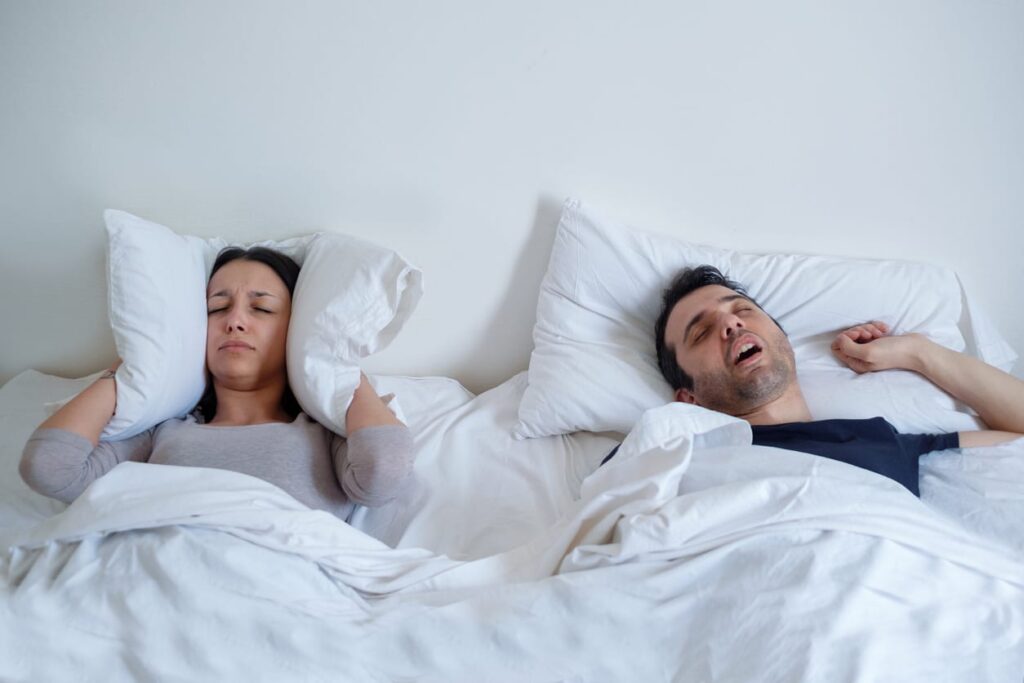
Sleep Apnea in Children
While the core anatomical abnormalities for both adult and pediatric sleep apnea are the same, the symptoms and effects differ.
Sleep apnea children experience the same fragmented, poor-quality sleep as adults. However, parents may overlook this medical issue since some symptoms of children’s sleep apnea may be misidentified as willfulness or attention deficit difficulties.
These unhappy children may be frequently reprimanded or drugged with high stimulants merely because they have a structural condition that prevents them from breathing and sleeping soundly.
A parent may be unaware that their child has sleep apnea despite the following symptoms during sleep:
- Snoring
- Going for extended lengths of time without taking a breath
- Choking or coughing
- Excessive night sweating
- Restlessness
They may simply consider their child to be a restless sleeper. When actually, this child has been trying all night to obtain enough air into their lungs. The child has the following challenges as a result of the stress and inflammation caused throughout the body, as well as a lack of sufficient sleep:
- Health issues
- Bedwetting
- Sleepwalking
- Having difficulty waking up
- Heart issues
- Hyperactivity
- Inadequate growth and weight increase
- Learning disabilities
- Problems with behavior or education:
- Poor concentration, inability to pay attention
- Poor performance or application to schoolwork

